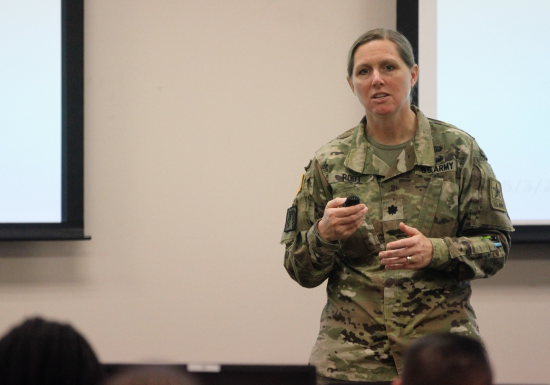The U.S. military abides by the expectations, regulations, and rules set forth by the Uniform Code of Military Justice (UCMJ).
The UCMJ governs the conduct and duty of service members and outlines prohibited behaviors, the majority of which are in alignment with civilian law.
However, unlike most legal systems outside of the military, the UCMJ also addresses certain violations of conduct such as adultery—an act punishable under Article 134.
When it comes to adultery and the UCMJ, it’s important to know what happens if you cheat in the military.
Related Article – Military NJP: 5 Things To Know About Non-Judicial Punishment
Table of Contents
Why Would The Military Criminalize Adultery?

Most civilians would be at least perplexed if not shocked to find out that military members can be legally prosecuted for a consensual sexual affair.
The reasoning behind the military’s criminalization of adultery includes the following:
- Reduce unit distraction and potential loss of trust and/or morale
- Reduce potential decline in unit’s fighting efficiency and mission readiness
- Reinforce exemplary and moral leadership
Typically, it has been at the discretion of the commander to prosecute and/or discipline a service member’s sexual indiscretion.
However, the military has recently revised its definition of adultery.
In addition, adultery is now a punishable offense only if it degrades good order and discipline within a military unit or brings discredit upon the Armed Forces.
How The Military Defines Adultery
The UCMJ was implemented in 1951, and has undergone many updates in the decades since.
In 2012, the UCMJ rule with regard to adultery was: “Article 134 of the Uniform Code of Military Justice makes criminal the act of adultery when certain legal criteria, known as ‘elements,’ have been met.”
These elements refer to:
- Service member had sexual intercourse with someone
- Either the service member or the sexual partner was married to another person at the time
- Circumstances reveal that the conduct was prejudicial to good order and discipline or of a nature to bring discredit on the Armed Forces
It is the third element that is central to how a service member may currently be punished for cheating on their spouse.
The conduct or act of adultery is not punishable for occurring.
However, if there is disruption within the military unit or discrediting of the Armed Forces as a whole, then the conduct or act of adultery is punishable under article 134.
Proving Adulterous Cheating In The Military

In order to charge a service member with adultery under the UCMJ, all three elements must be proven by the government beyond a reasonable doubt.
These three elements can be difficult to thoroughly prove.
This is why commanders are allowed discretion in terms of their subordinates in cases of adultery.
They are given latitude to decide whether adulterous conduct has been prejudicial to good order and discipline and/or a discredit to the unit.
Therefore, to convict a U.S. military member of adultery, the prosecution must effectively establish that the act had an obvious and measurable effect on the unit’s morale, discipline, or cohesion, or that it impacted the military’s mission.
Conviction is also possible if there is proof that government time and/or resources were misused to enable the adulterous act.
In addition, if the service member’s act impacted the authority or esteem of a fellow member, or if military service was impacted in a detrimental manner among the public’s esteem, the adulterer is subject to conviction and punishment.
During the UCMJ process, military rank and status of all parties involved is considered in addition to any other accompanying UCMJ violations.
Related Article – AWOL, Desertion, UA Explained For The Average Civilian
Adultery, Article 134, And Punishment
In the military, adultery can be a serious charge, especially if it is prejudicial to good order and discipline within a military unit or the overall U.S. Armed Forces.
If a service member is convicted, their punishment could include:
- Dishonorable discharge
- Up to one year confinement
- Forfeit of pay and allowances
However, adulterous cheating in the military will often result in less severe punishments.
This may include administrative disciplinary action, reduction in rank, partial forfeit of pay, or other punitive measures.
There are nine factors established by Article 134 for commanders to consider.
These factors can help them decide whether a service member’s act of adultery is prejudicial to the unit’s good order and discipline or of a nature to discredit the Armed Forces:
- Marital status, rank, and position of the accused
- Marital status, rank, position, and relationship to the Armed Forces of the co-actor
- Military status of the spouses of the accused and/or co-actor and their relationship to the Armed Forces
- Any impact of the extramarital relationship on the ability of the accused, co-actor, or spouse of either party to perform military duties
- Any misuse of government time or resources to facilitate the extramarital actions
- If the conduct persisted in spite of counseling or orders to desist, flagrancy of the conduct (if notoriety was involved), and/or whether the extramarital act was accompanied by other UCMJ violations
- Negative impact of conduct on military units of the accused, co-actor, or spouse of either (detrimental effects on unit morale, teamwork, efficiency, etc.)
- Whether the accused or co-actor was legally separated at the time of extramarital act
- If extramarital conduct reflects a current or recent relationship or if time has elapsed
UCMJ Updates

Congress passed the Military Justice Act in 2016, designed to reorganize certain aspects of the UCMJ.
This included a revision of what legally constitutes adultery in the U.S. military and the circumstances under which it can be punished.
These changes were in place for the 2019 Manual for Courts-Martial.
The new rules and updates for the UCMJ in terms of adultery are:
- “Adultery” is not a term used anymore in the UCMJ
- “Extramarital sexual conduct” is the current term representing the formal charge
- Extramarital sexual conduct includes any sexual contact (not just intercourse)
- The charge currently reflects gender neutrality, so conduct is punishable independent of sexual orientation and on a gender-neutral basis
In addition, there is a new defense permitted in the revised UCMJ.
This legal separation defense states that if a married couple is in the process of legally dissolving their marriage when the extramarital sexual conduct takes place, the service member can use such legal separation as a defense.
Legal separation is initiated when a married couple signs a formal separation agreement or an order is issued by the state court.
This formal agreement is a contract that resolves legal issues of ending the marriage.
It usually addresses property division, child custody, and support for spouse and/or child.
This agreement is often a precursor to a final divorce granted by the court and has legal ramifications.
Therefore, legal separation is important in considering whether an extramarital sexual act or relationship has violated UCMJ conduct, rules, and regulations.
However, the defense itself is limited in certain ways.
For example, if both parties engaging in the extramarital sexual behavior are married, they must both be formally, legally separated.
Related Article – 8 Types Of Military Discharge
Conclusion
The U.S. military is unique in that the personal conduct of its members in terms of adultery or extramarital sexual activity is subject to UCMJ prosecution.
The UCMJ has been revised to punish a service member for any adverse effects on the military unit rather than the adultery itself.
However, there is still potential for criminal liability under Article 134.
Even if a military member is legally separated from their spouse, that defense is limited.
This means that adultery charges can still be made and punishment can be carried out.
Such punishment may result in administrative or more serious disciplinary action.
Therefore, the only way to ensure that a service member does not violate UCMJ conduct in terms of extramarital sex is not to cheat whatsoever until the court grants a final decree of divorce.
- Ikon Pass Military Discount: Learn How To Save Big - January 31, 2025
- RTIC Military Discount: Find Out How To Save Big on Gear - January 30, 2025
- Traeger Military Discount: Learn How To Save Big on Smokers - January 28, 2025






Married for 24 years. Husband retired in 2022 after 30 years of service in the USAF. We were married for 23 years at the time that I discovered his adultery. I discovered he had been cheating for possibly 10 years or more of our marriage while in the USAF. Some of the acts of adultery was allowed on his duty station. Shouldn’t he be punished for his actions? or what can I do as the victim/wife?